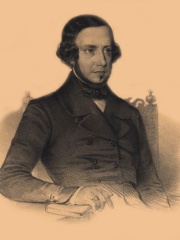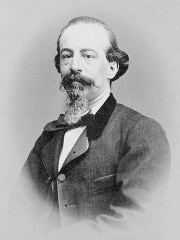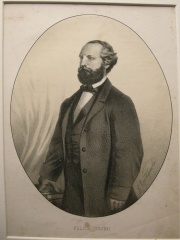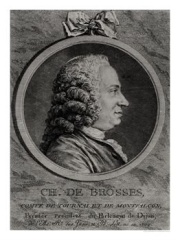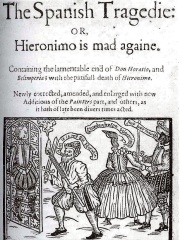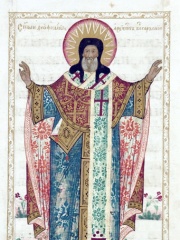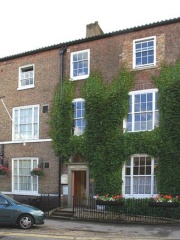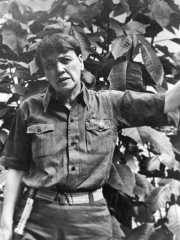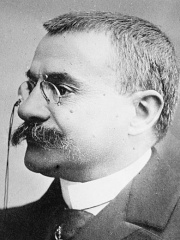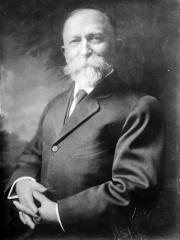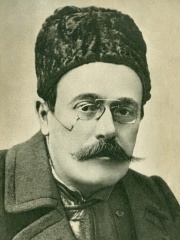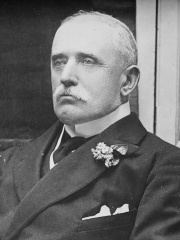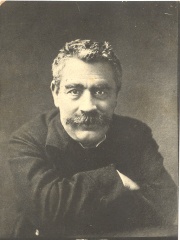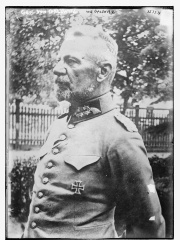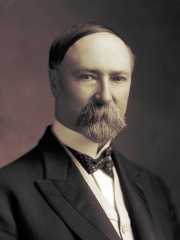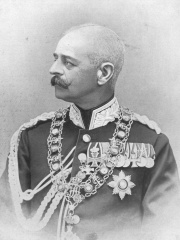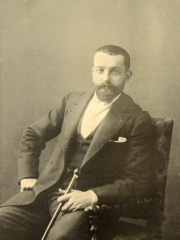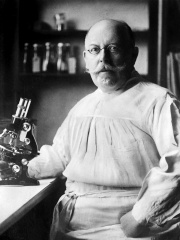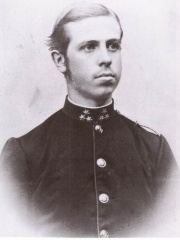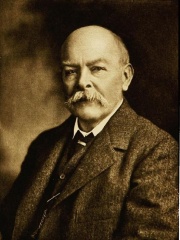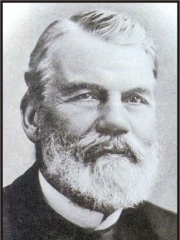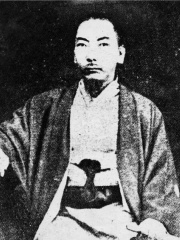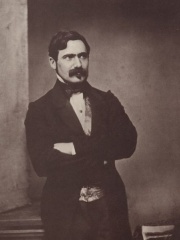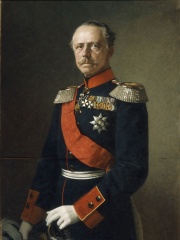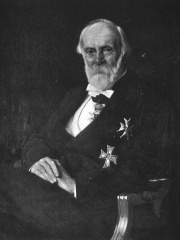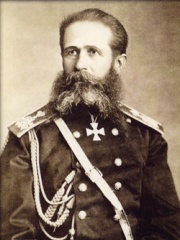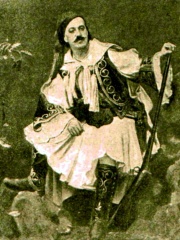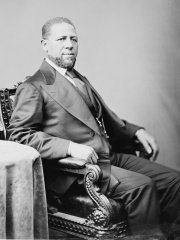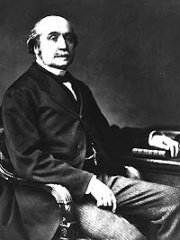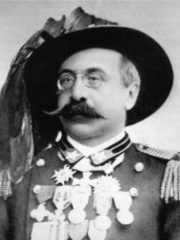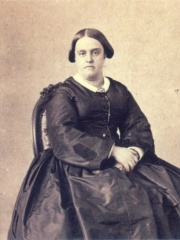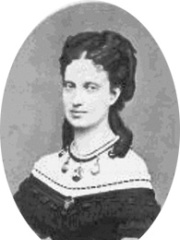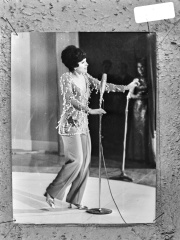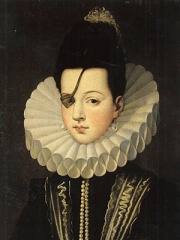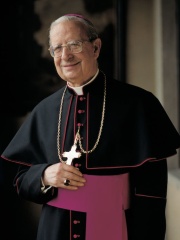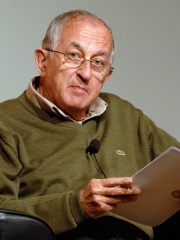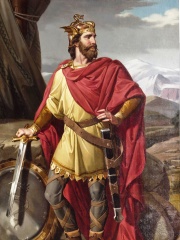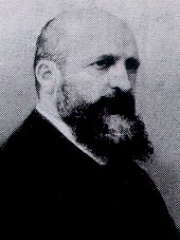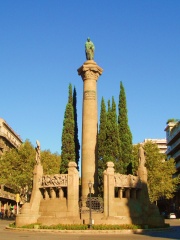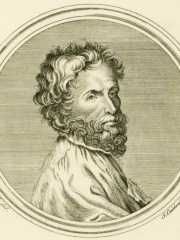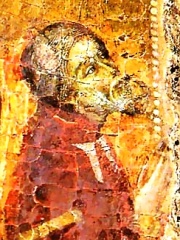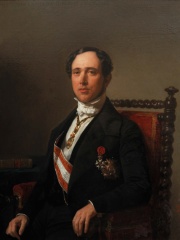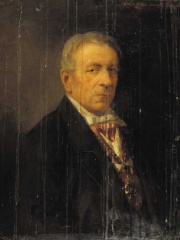Writer
Leopoldo Alas
1852 - 1901
EN.WIKIPEDIA PAGE VIEWS (PV)
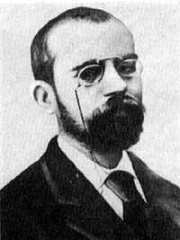
 Leopoldo Alas
Leopoldo Alas
His biography is available in 37 different languages on Wikipedia (up from 35 in 2024). Leopoldo Alas is the 1,957th most popular writer (up from 2,230th in 2024), the 679th most popular biography from Spain (up from 767th in 2019) and the 73rd most popular Spanish Writer.
Memorability Metrics
Page views of Leopoldo Alas by language
Among Writers
Among writers, Leopoldo Alas ranks 1,957 out of 7,302. Before him are David Morrell, Almeida Garrett, James Murray, José Zorrilla, Felice Orsini, and Charles de Brosses. After him are Fred Vargas, Thomas Kyd, Theophylact of Ohrid, Basil Valentine, James Herriot, and Agnes Smedley.
Most Popular Writers in Wikipedia
Go to all RankingsDavid Morrell
1943 - Present
HPI: 63.37
Rank: 1,951
Almeida Garrett
1799 - 1854
HPI: 63.37
Rank: 1,952
James Murray
1837 - 1915
HPI: 63.37
Rank: 1,953
José Zorrilla
1817 - 1893
HPI: 63.36
Rank: 1,954
Felice Orsini
1819 - 1858
HPI: 63.35
Rank: 1,955
Charles de Brosses
1709 - 1777
HPI: 63.34
Rank: 1,956
Leopoldo Alas
1852 - 1901
HPI: 63.34
Rank: 1,957
Fred Vargas
1957 - Present
HPI: 63.34
Rank: 1,958
Thomas Kyd
1558 - 1594
HPI: 63.33
Rank: 1,959
Theophylact of Ohrid
1055 - 1107
HPI: 63.33
Rank: 1,960
Basil Valentine
1394 - 1450
HPI: 63.32
Rank: 1,961
James Herriot
1916 - 1995
HPI: 63.32
Rank: 1,962
Agnes Smedley
1892 - 1950
HPI: 63.32
Rank: 1,963
Contemporaries
Among people born in 1852, Leopoldo Alas ranks 44. Before him are Théophile Delcassé, John Harvey Kellogg, Ion Luca Caragiale, John French, 1st Earl of Ypres, I. L. Peretz, and Max von Gallwitz. After him are Charles W. Fairbanks, Frederick Augustus II, Grand Duke of Oldenburg, Henri Gervex, Friedrich Loeffler, Archduke Johann Salvator of Austria, and John Henry Poynting. Among people deceased in 1901, Leopoldo Alas ranks 34. Before him are François-Marie Raoult, Shō Tai, Max Joseph von Pettenkofer, Charles Alexander, Grand Duke of Saxe-Weimar-Eisenach, Jacob Georg Agardh, and Iosif Gurko. After him are Lev Ivanov, Hiram Rhodes Revels, Albert, 4th duc de Broglie, Oreste Baratieri, Princess Januária of Brazil, and Archduchess Maria Isabella of Austria.
Others Born in 1852
Go to all RankingsThéophile Delcassé
POLITICIAN
1852 - 1923
HPI: 64.24
Rank: 38
John Harvey Kellogg
PHYSICIAN
1852 - 1943
HPI: 64.01
Rank: 39
Ion Luca Caragiale
WRITER
1852 - 1912
HPI: 63.94
Rank: 40
John French, 1st Earl of Ypres
MILITARY PERSONNEL
1852 - 1925
HPI: 63.82
Rank: 41
I. L. Peretz
WRITER
1852 - 1915
HPI: 63.77
Rank: 42
Max von Gallwitz
MILITARY PERSONNEL
1852 - 1937
HPI: 63.66
Rank: 43
Leopoldo Alas
WRITER
1852 - 1901
HPI: 63.34
Rank: 44
Charles W. Fairbanks
POLITICIAN
1852 - 1918
HPI: 63.29
Rank: 45
Frederick Augustus II, Grand Duke of Oldenburg
POLITICIAN
1852 - 1931
HPI: 63.00
Rank: 46
Henri Gervex
PAINTER
1852 - 1929
HPI: 62.73
Rank: 47
Friedrich Loeffler
BIOLOGIST
1852 - 1915
HPI: 62.73
Rank: 48
Archduke Johann Salvator of Austria
POLITICIAN
1852 - 1890
HPI: 62.67
Rank: 49
John Henry Poynting
PHYSICIST
1852 - 1914
HPI: 62.56
Rank: 50
Others Deceased in 1901
Go to all RankingsFrançois-Marie Raoult
CHEMIST
1830 - 1901
HPI: 64.06
Rank: 28
Shō Tai
POLITICIAN
1843 - 1901
HPI: 63.83
Rank: 29
Max Joseph von Pettenkofer
CHEMIST
1818 - 1901
HPI: 63.79
Rank: 30
Charles Alexander, Grand Duke of Saxe-Weimar-Eisenach
POLITICIAN
1818 - 1901
HPI: 63.76
Rank: 31
Jacob Georg Agardh
BIOLOGIST
1813 - 1901
HPI: 63.76
Rank: 32
Iosif Gurko
MILITARY PERSONNEL
1828 - 1901
HPI: 63.52
Rank: 33
Leopoldo Alas
WRITER
1852 - 1901
HPI: 63.34
Rank: 34
Lev Ivanov
DANCER
1834 - 1901
HPI: 63.14
Rank: 35
Hiram Rhodes Revels
POLITICIAN
1827 - 1901
HPI: 62.79
Rank: 36
Albert, 4th duc de Broglie
POLITICIAN
1821 - 1901
HPI: 62.72
Rank: 37
Oreste Baratieri
MILITARY PERSONNEL
1841 - 1901
HPI: 61.84
Rank: 38
Princess Januária of Brazil
COMPANION
1822 - 1901
HPI: 61.84
Rank: 39
Archduchess Maria Isabella of Austria
NOBLEMAN
1834 - 1901
HPI: 61.83
Rank: 40
In Spain
Among people born in Spain, Leopoldo Alas ranks 679 out of NaN. Before him are Santiago Cañizares (1969), Salomé (1939), Ana de Mendoza, Princess of Eboli (1540), Antonio de Torres Jurado (1817), José Zorrilla (1817), and Álvaro del Portillo (1914). After him are Josep Lluís Núñez (1931), Idris al-Ma'mun (1186), Daniel Brühl (1978), Ardo (700), Juan Goytisolo (1931), and Sisenand (605).
Others born in Spain
Go to all RankingsSantiago Cañizares
SOCCER PLAYER
1969 - Present
HPI: 63.39
Rank: 673
Salomé
SINGER
1939 - Present
HPI: 63.37
Rank: 674
Ana de Mendoza, Princess of Eboli
NOBLEMAN
1540 - 1592
HPI: 63.37
Rank: 675
Antonio de Torres Jurado
POLITICIAN
1817 - 1892
HPI: 63.36
Rank: 676
José Zorrilla
WRITER
1817 - 1893
HPI: 63.36
Rank: 677
Álvaro del Portillo
ENGINEER
1914 - 1994
HPI: 63.34
Rank: 678
Leopoldo Alas
WRITER
1852 - 1901
HPI: 63.34
Rank: 679
Josep Lluís Núñez
BUSINESSPERSON
1931 - 2018
HPI: 63.33
Rank: 680
Idris al-Ma'mun
POLITICIAN
1186 - 1232
HPI: 63.33
Rank: 681
Daniel Brühl
ACTOR
1978 - Present
HPI: 63.32
Rank: 682
Ardo
POLITICIAN
700 - 721
HPI: 63.31
Rank: 683
Juan Goytisolo
WRITER
1931 - 2017
HPI: 63.31
Rank: 684
Sisenand
POLITICIAN
605 - 636
HPI: 63.29
Rank: 685
Among Writers In Spain
Among writers born in Spain, Leopoldo Alas ranks 73. Before him are Miguel Hernández (1910), Pedro Antonio de Alarcón (1833), Jacint Verdaguer (1845), Cristóbal de Morales (1600), Don Juan Manuel (1282), and José Zorrilla (1817). After him are Juan Goytisolo (1931), Juan Donoso Cortés (1809), Ángel de Saavedra, 3rd Duke of Rivas (1791), Abu Hamid al-Gharnati (1080), Jaume Cabré (1947), and Salvador de Madariaga (1886).
Miguel Hernández
1910 - 1942
HPI: 63.64
Rank: 67
Pedro Antonio de Alarcón
1833 - 1891
HPI: 63.63
Rank: 68
Jacint Verdaguer
1845 - 1902
HPI: 63.55
Rank: 69
Cristóbal de Morales
1600 - 1655
HPI: 63.55
Rank: 70
Don Juan Manuel
1282 - 1348
HPI: 63.42
Rank: 71
José Zorrilla
1817 - 1893
HPI: 63.36
Rank: 72
Leopoldo Alas
1852 - 1901
HPI: 63.34
Rank: 73
Juan Goytisolo
1931 - 2017
HPI: 63.31
Rank: 74
Juan Donoso Cortés
1809 - 1853
HPI: 63.24
Rank: 75
Ángel de Saavedra, 3rd Duke of Rivas
1791 - 1865
HPI: 63.20
Rank: 76
Abu Hamid al-Gharnati
1080 - 1170
HPI: 63.16
Rank: 77
Jaume Cabré
1947 - Present
HPI: 63.04
Rank: 78
Salvador de Madariaga
1886 - 1978
HPI: 62.96
Rank: 79

